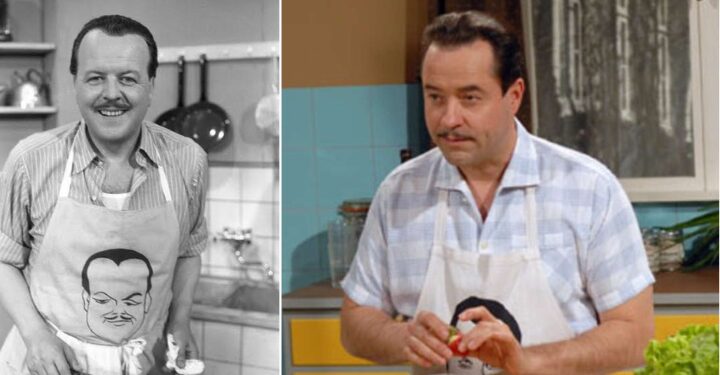Clemens Wilmenrod was a groundbreaking figure in German culinary history, known as the country’s first TV chef. His innovative approach to cooking, blending entertainment with simple recipes, revolutionized post-war German kitchens.
Quick Bio
| Detail | Information |
|---|---|
| Full Name | Clemens Wilmenrod |
| Birth Date | September 26, 1906 |
| Birthplace | Kassel, Germany |
| Death Date | March 18, 1967 (aged 60) |
| Occupation | Chef, TV Personality, Entertainer |
| Famous For | Inventing Toast Hawaii |
| Nickname | “The Television Cook” |
| Key Contribution | Popularizing convenience cooking |
| Legacy | Paved the way for modern cooking shows |
| Spouse | Margot Wilmenrod |
Who is Clemens Wilmenrod?

Clemens Wilmenrod was more than just a chef—he was a cultural icon who brought cooking into German living rooms. At a time when television was still new, his charismatic presence and easy recipes made him a household name. Often called “The Television Cook,” he turned cooking into entertainment, making him a pioneer of modern food media.
Early Life and Background

Born in Kassel, Germany, in 1906, Wilmenrod didn’t start as a chef. Before his culinary fame, he worked as a waiter, actor, and entertainer, skills that later helped him captivate TV audiences. His early career in show business gave him the confidence and flair that would define his later success.
Age and Physical Appearance
Wilmenrod lived from 1906 to 1967, passing away at 60 years old. He had a commanding presence—often seen in a classic chef’s hat and apron on screen. His expressive face and theatrical gestures made him instantly recognizable, adding to his charm as Germany’s first televised cooking star.
His Chef Career Beginnings

In the early 1950s, Wilmenrod shifted from entertainment to cooking. He started with live demonstrations and radio shows, where his engaging personality won over audiences. His big break came when German television sought fresh content—and Wilmenrod was the perfect fit.
Rise to Fame: Germany’s First TV Chef
His breakthrough came in 1953 with the show Bitte in zehn Minuten zu Tisch (“Dinner in Ten Minutes”). At a time when TV was rare, his program became a sensation. Wilmenrod’s ability to simplify cooking for the average person made him a post-war culinary hero.
Signature Dishes and Culinary Style
Wilmenrod’s most famous creation was Toast Hawaii—a simple yet controversial dish of ham, pineapple, and cheese on toast. While traditional chefs scoffed, the public loved it. His recipes focused on speed and accessibility, reflecting the needs of a recovering nation.
Controversies and Criticism
Not everyone admired Wilmenrod. Purist chefs criticized his “fast-food” style, claiming it lacked authenticity. Others accused him of valuing showmanship over skill. Yet, his popularity proved that people wanted practical, not pretentious, cooking.
Later Years and Decline
By the 1960s, his fame waned as new chefs emerged. Financial troubles and rumored struggles with alcoholism affected his health. Despite fading from the spotlight, his influence remained.
Legacy and Influence
Wilmenrod’s impact was immense. He democratized cooking, proving that anyone could prepare meals without professional training. His work mirrored Germany’s Wirtschaftswunder (economic miracle), symbolizing progress and optimism.
Death and Posthumous Recognition
He died in 1967 from a stroke, but his legacy endured. In the 2000s, a nostalgia wave revived interest in Toast Hawaii and Wilmenrod’s contributions, cementing his status as a cult figure in German pop culture.
Conclusion
Clemens Wilmenrod wasn’t just a chef—he was a revolutionary who transformed how Germans viewed cooking. By blending entertainment with practicality, he laid the foundation for today’s food TV stars. His story remains a testament to innovation in the kitchen.
FAQs About Clemens Wilmenrod
What was Clemens Wilmenrod’s most famous dish?
Toast Hawaii—a sweet and savory open-faced sandwich.
Did he have formal culinary training?
No, he was a self-taught entertainer who learned cooking through experience.
Why was he controversial?
Traditional chefs disliked his fast, simple approach to cooking.
How did TV change his career?
It made him a national celebrity, though later typecast him as a novelty act.
What is his lasting impact?
He inspired modern cooking shows and made gourmet food accessible.
Visit For More Update And Gossip: Scorpion Magazine












